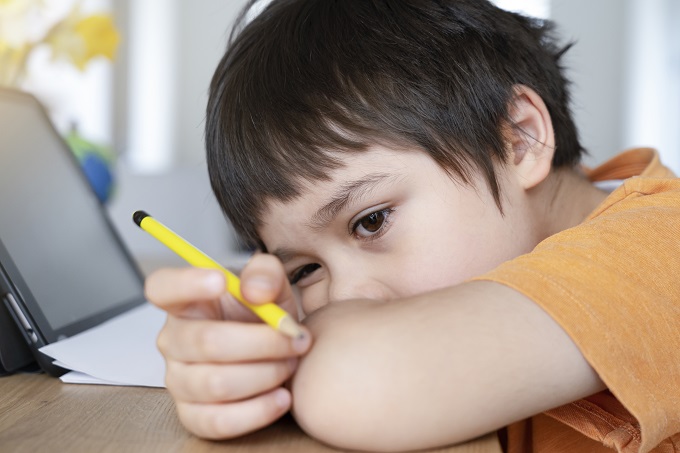
© Anchalee - stock.adobe.com
Parents of school-aged children were very concerned that their children may catch COVID-19 if schools were reopened at Alert Level 3 despite no evidence supporting this view, a new University of Otago, Christchurch study reveals.
The survey of 1191 parents shows 79 per cent of participants believed it ‘likely’ or ‘very likely’ their child would catch COVID-19 from other children if schools were to reopen when there was widespread community transmission. Only 7 per cent thought it would be ‘unlikely’ or ‘very unlikely’.
More than 60 per cent of parents were either ‘extremely’, ‘very’ or ‘somewhat’ worried about their children catching COVID-19 at school, when surveyed just prior to schools reopening at Alert Level 2.
University of Otago, Christchurch Associate Professor Tony Walls, a paediatric infectious diseases expert, says the study results showed there was a real concern among parents that their children could catch COVID-19 at school.
“There appears to be a perception that children are very likely to transmit COVID-19 if they become infected and that schools are a high risk environment for transmission. The current evidence does not support this view and the risk appears to be very low.”
The survey was carried out because researchers wanted to understand where parents were getting information about COVID-19 and how anxious they were about children contracting the virus at school.
“The situation with COVID-19 developed very rapidly and was understandably quite a concern for parents, particularly when thinking about sending their children back to school after lockdown,” Associate Professor Walls says.
The results – which have been given to the Ministry of Education – show the most widely trusted source of information for parents was the live daily press briefings from parliament. Other government sources, particularly the dedicated COVID-19 and Ministry of Health websites, were also widely trusted.
Associate Professor Walls says evidence from New Zealand and overseas shows children generally have a milder COVID-19 disease course and better prognosis than adults. In New Zealand, none of the 80 children infected before the end of May required hospitalisation.
“In anticipation of schools reopening at Alert Level 2 there was public messaging about the very low risk of New Zealand children acquiring COVID-19 from other students. But at the same time there were frequent media reports of severe complications from COVID-19 occurring in children in other parts of the world,” Associate Professor Walls explains.
“These reports of emerging paediatric inflammatory multisystem syndrome seem to have caused widespread concern amongst parents, despite no established link between the syndrome and COVID-19.”
The paediatric infectious diseases expert says the study shows the need for ongoing clear and accurate communications from public health officials around the true risks to children of catching COVID-19 in schools.
The study canvassed parents on their willingness to vaccinate their children if a vaccine for COVID-19 was developed. A large proportion of parents (70 per cent) would get their children vaccinated.
“This may reflect confidence in New Zealand public health recommendations and the national immunisation programme,” Associate Professor Walls says.
The much-delayed English draft curriculum is now out for consultation, generating discussion from teachers.
Research from AUT demonstrates arts, culture and recreation have positive impacts on all aspects of…
How effective has the school phone ban been in achieving its aims? Researchers from the…
School camps and excursions deliver hands on learning experiences, helping to consolidate classroom learning.
Innovations in AV technologies present new opportunities to engage with students. We look at how…
A new report from the University of Auckland’s Our Voices Project asks young people what…
This website uses cookies.